No, Don't! Good job!
Language.. Language is becoming an issue at our home. Ok, not an issue exactly, but I definitely start to hear myself more, and the way we talk to our child.
Before.. I didn't have the feeling that it matters that much. She was a baby, and non-verbal communication was a lot more important than verbal one.
However, around this age, I don't remember when was it exactly, but sometime after 7 months their understanding of spoken language activates, some time around now - babies start to really listen and process, what you are saying, some possibly even say the first words (I have heard of baby saying a word around 3 months, which seems quite unbelievable, and definitely is not common. The norm that I have heard, is that until 1 year the child should have said at least one word).
I'm not sure, is Adelaide already giving more attention to language, but we definitely should be. Naturally - because I want her to understand me, understand, what I'm saying.
The problem is our bilingual home. Being bilingual gives a whole other element. We are trying to each talk to her in our own native language - I'm talking to her in Latvian, my Husband in Estonian. As the Husband is spending so much less time with her (because he works), when we are all together, we try to speak Estonian. Sometimes we forget about this and talk to each other in English. But we are trying to avoid it, as we want the family language to be Estonian. (English is not a concern to me, she will learn it anyway.)
However, as we sometimes forget and are not very consistent, I'm afraid we are making it harder for her. And that it might be confusing.
I know that bilingual children tend to start talking a lot later than normal, which is a bit sad, because I'm really looking forward to her talking. :)
And another issue is not only the language we say things in, but WHAT do we say.
I have known the theory for a long time, and it seemed easy. But in reality.. It's a lot harder.
First of all, you shouldn't say NO and DON'T. (And it's really easy to say this negative form in both Latvian and Estonian, "ära", "ne-")
It's nothing to do with discipline or allowing your child to do whatever, not at all. But the way to achieve the discipline and to direct your child, is not not with these negative words. We should redirect in a positive way: "you may..", "lets..", "instead of that..", "lets do something else.." and so on. Leaving NO only for really important, dangerous situations.
Second of all, you shouldn't praise your child unnecessarily much, you shouldn't say "Good job!" or (even worse) "Good girl!" all the time, probably should say these things as little as possible. It's because the child is not a dog, and it teaches children to look and aim for your praise and approval. And they are motivated not by their inner wish to succeed anymore, but from an outside motivator. So, you should say: "You did it!", "How exciting!", "I see how proud you are!", "You worked so hard on it..", pretty much anything that shares their joy for a completed or successful task, but that doesn't simply praise them.
These two things I have known forever, but now.. I catch myself saying them! And not just a little bit.. But a lot! It's not so easy to control oneself. Must try harder.
P.S. I didn't go too much into explaining, why exactly is it so bad to say these things.. Or more of the examples of what to say instead. But there are thousands of good articles on this on the internet already, just search "How not to say Good Job" paired with "Montessori", if you'd like to read more!
Before.. I didn't have the feeling that it matters that much. She was a baby, and non-verbal communication was a lot more important than verbal one.
However, around this age, I don't remember when was it exactly, but sometime after 7 months their understanding of spoken language activates, some time around now - babies start to really listen and process, what you are saying, some possibly even say the first words (I have heard of baby saying a word around 3 months, which seems quite unbelievable, and definitely is not common. The norm that I have heard, is that until 1 year the child should have said at least one word).
I'm not sure, is Adelaide already giving more attention to language, but we definitely should be. Naturally - because I want her to understand me, understand, what I'm saying.
The problem is our bilingual home. Being bilingual gives a whole other element. We are trying to each talk to her in our own native language - I'm talking to her in Latvian, my Husband in Estonian. As the Husband is spending so much less time with her (because he works), when we are all together, we try to speak Estonian. Sometimes we forget about this and talk to each other in English. But we are trying to avoid it, as we want the family language to be Estonian. (English is not a concern to me, she will learn it anyway.)
However, as we sometimes forget and are not very consistent, I'm afraid we are making it harder for her. And that it might be confusing.
I know that bilingual children tend to start talking a lot later than normal, which is a bit sad, because I'm really looking forward to her talking. :)
And another issue is not only the language we say things in, but WHAT do we say.
I have known the theory for a long time, and it seemed easy. But in reality.. It's a lot harder.
First of all, you shouldn't say NO and DON'T. (And it's really easy to say this negative form in both Latvian and Estonian, "ära", "ne-")
It's nothing to do with discipline or allowing your child to do whatever, not at all. But the way to achieve the discipline and to direct your child, is not not with these negative words. We should redirect in a positive way: "you may..", "lets..", "instead of that..", "lets do something else.." and so on. Leaving NO only for really important, dangerous situations.
Second of all, you shouldn't praise your child unnecessarily much, you shouldn't say "Good job!" or (even worse) "Good girl!" all the time, probably should say these things as little as possible. It's because the child is not a dog, and it teaches children to look and aim for your praise and approval. And they are motivated not by their inner wish to succeed anymore, but from an outside motivator. So, you should say: "You did it!", "How exciting!", "I see how proud you are!", "You worked so hard on it..", pretty much anything that shares their joy for a completed or successful task, but that doesn't simply praise them.
These two things I have known forever, but now.. I catch myself saying them! And not just a little bit.. But a lot! It's not so easy to control oneself. Must try harder.
P.S. I didn't go too much into explaining, why exactly is it so bad to say these things.. Or more of the examples of what to say instead. But there are thousands of good articles on this on the internet already, just search "How not to say Good Job" paired with "Montessori", if you'd like to read more!

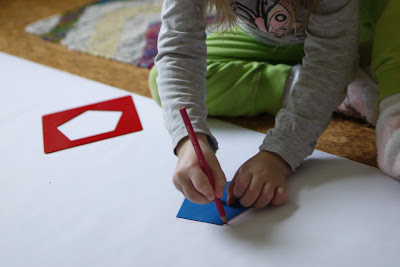
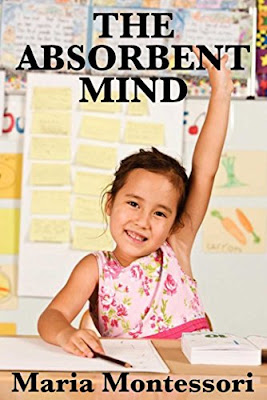
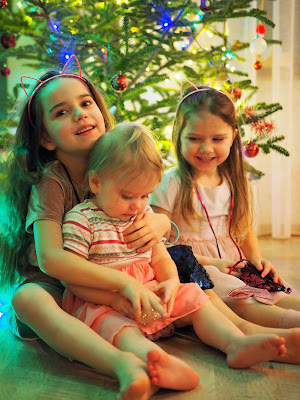
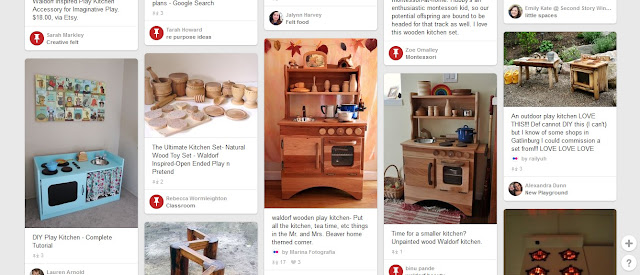
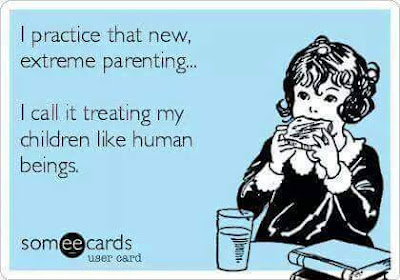
Comments
Post a Comment